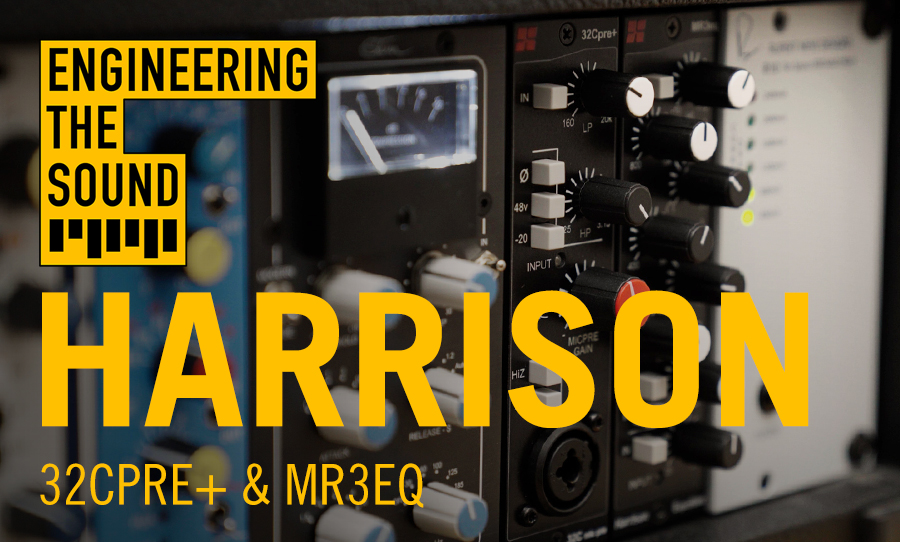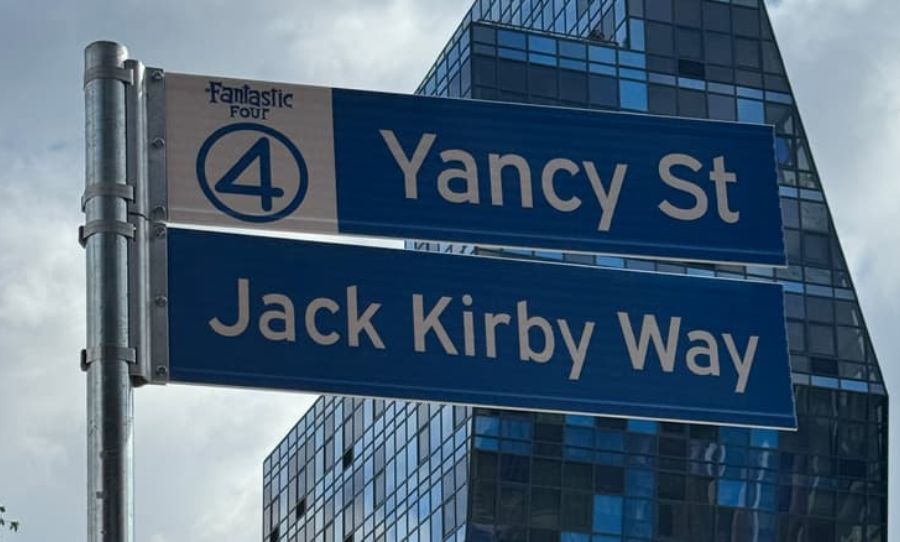There’s an undeniable evolution that Jess Locke approaches head-on, and one that shines through on her latest studio album, Don’t Ask Yourself Why.
On her third studio album, indie-pop icon, Jess Locke weaves a fairytale from one-part dream-rock and one-part slam poetry, culminating in a record that honours the studio over the stage.
Produced alongside Melbourne extraordinaire, Rob Muinos, Don’t Ask Yourself Why fuses Jess’ signature storytelling, with a completely novel and refreshing sound. Happy sat down with Jess to chat about the adaptations of her sound, breaking personal boundaries, and the removal of expectations in experimentation.
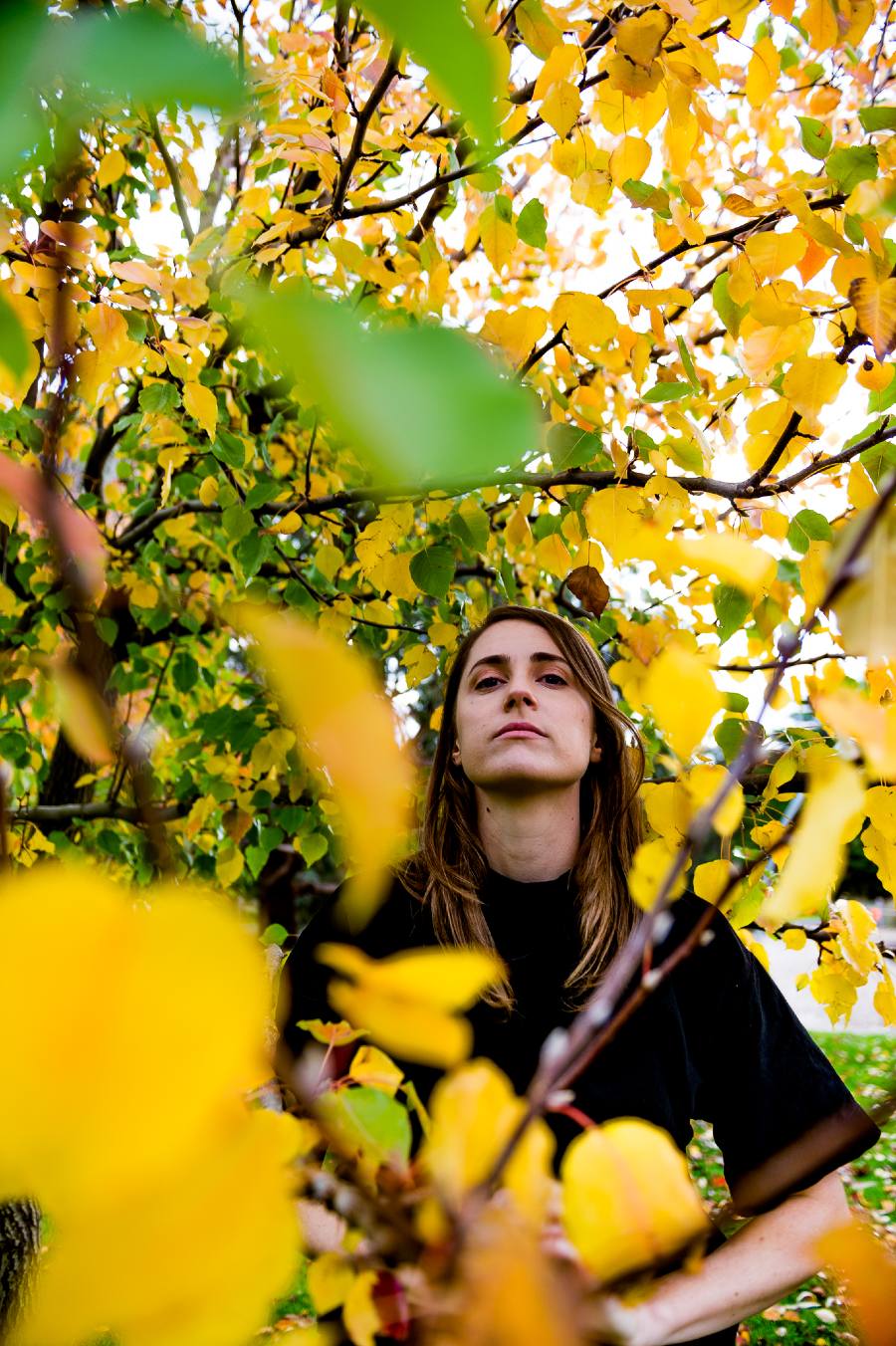
HAPPY: Hey Jess! How’ve you been?
JESS LOCKE: I’ve been good, yeah, really good!
HAPPY: Awesome! So, I just wanted to ask, what inspired the sonic evolution on Don’t Ask Yourself Why, and why did you want to go for a more adventurous sound?
JESS LOCKE: Yeah. I think it’s just a natural progression really. Like, it wasn’t a particularly conscious thing, other than I suppose just evolving as a songwriter and as a musician to try and put less limits on myself I suppose, rather than trying to recreate a sound that fits my brand or whatever. Just trying to make interesting music, I mean that’s all it comes down to really. Yeah, for me personally, it’s just artistic satisfaction in pushing myself, and basically just seeing what happens and being open.
HAPPY: Yeah! I guess I’ve heard you recorded Don’t Ask Yourself Why as a record first and foremost, rather than something that you developed through playing live shows. Did you find that more enjoyable? Did you find that there were less limits? Or did you find that there were different limits?
JESS LOCKE: I think there were definitely less, yeah. It was really rewarding not having to write something thinking about how it’s gonna be performed or the practical side of things, just using whatever I had at my disposal. Yeah, it was awesome! Obviously, now that we’re performing again we have to think about how to actually translate it all to the live show, but yeah, in the actual time of writing it it’s awesome – the world’s your oyster in terms of what you can do. So, yeah, definitely an enjoyable process!
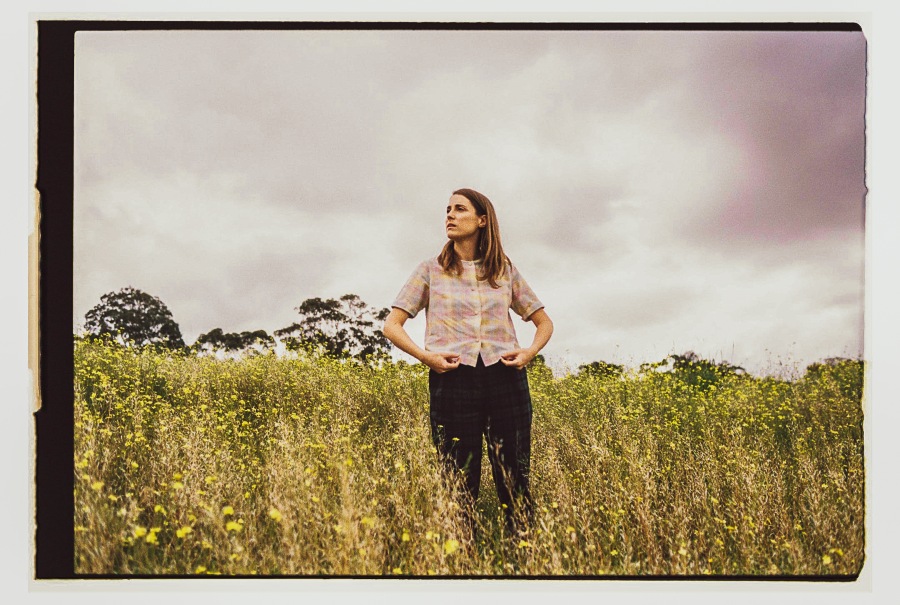
HAPPY: Yeah! Are you thinking about how you’re gonna translate this into a live show? Have there been any hiccups?
JESS LOCKE: Well, obviously there’s a lot going on on the record, so, you know, obviously it’s not going to be able to have every tiny… Sorry, I’ve just got someone at the door, oh no he’s just left a parcel for me (laughs). Don’t have to do anything!
HAPPY: (Laughs)
JESS LOCKE: Yeah! In terms of recreating every sound on the record, that’s not really possible unless we had like, a twelve-piece band, which we don’t! So yeah, it’s kinda just that process of finding what’s essential about the song and being able to just express the most important feeling, I guess, without necessarily having a huge live band. Some songs it’s easier than others, but yeah, I guess live performance is I think about just creating a feeling or an energy. But you know, obviously the bigger budget you have, you can have more backing! But, as you probably know, we haven’t had a lot of money coming in because we haven’t been able to play, so it’s sort of that challenge. I don’t know, but at the same time it’s not like it’s gonna be compromised in any way, it’s just, yeah, I suppose coming to it after creating an album is very different to playing the songs together as a band and then recording that live sound – it’s a different experience for sure.
HAPPY: Yeah, well the diversity on this album SLAPS by the way, oh my god it actually slaps! I just wanted to ask, while creating this record, what did you explore differently in regards to singing, songwriting, guitar-playing. What were the notable differences?
JESS LOCKE: Well I worked a lot on my vocals actually! I think that’s a big part of the step-up from the last records and stuff. I think I just really put more of an effort into doing the vocal exercises and really trying to just see what my voice could do, whereas I suppose in the past it’s been a bit more of a, you know, kind just like ‘this is how I am, here it is!‘ and kind just like, a bit slacker or whatever – you know, just like ‘the rock band’. And yeah, I just really thought like, ‘what can I do with my voice as an instrument, and then really trying to develop it, and I think I really got a lot of satisfaction out of that. Yeah, seeing what I could do, sorry I just repeated myself… where is my train of thought going?
HAPPY: (Laughs)
JESS LOCKE: Yeah, anyway, just developing as a singer. Like, there’s a couple of piano songs which, again, like I played piano when I was a kid, but I never did the full exams or anything, but I think it was just trying to explore different areas of myself as a musician. And, obviously, you know, I’ve played guitar for a long time and that’s been the kind of the forefront of my recordings and music, but yeah, I definitely enjoy playing on piano – and writing! I was talking about this with some other friends and musicians the other day, it’s like when you get a new instrument, there’s always a few songs in it I find, and I think this is something that a lot of songwriters relate to is that, whether it’s just another guitar or an entire different instrument, it’s like, it sort of unlocks something. Yeah, often I find just picking up a different guitar, or playing piano for a change really, I think, inspired the songwriting as well. So yeah, just being able to add a few of those to the mix, as well as mixing up the nylon string and electric guitar, and steel-string acoustic, basically just having a little taste of a few different instruments just fed into the songs.
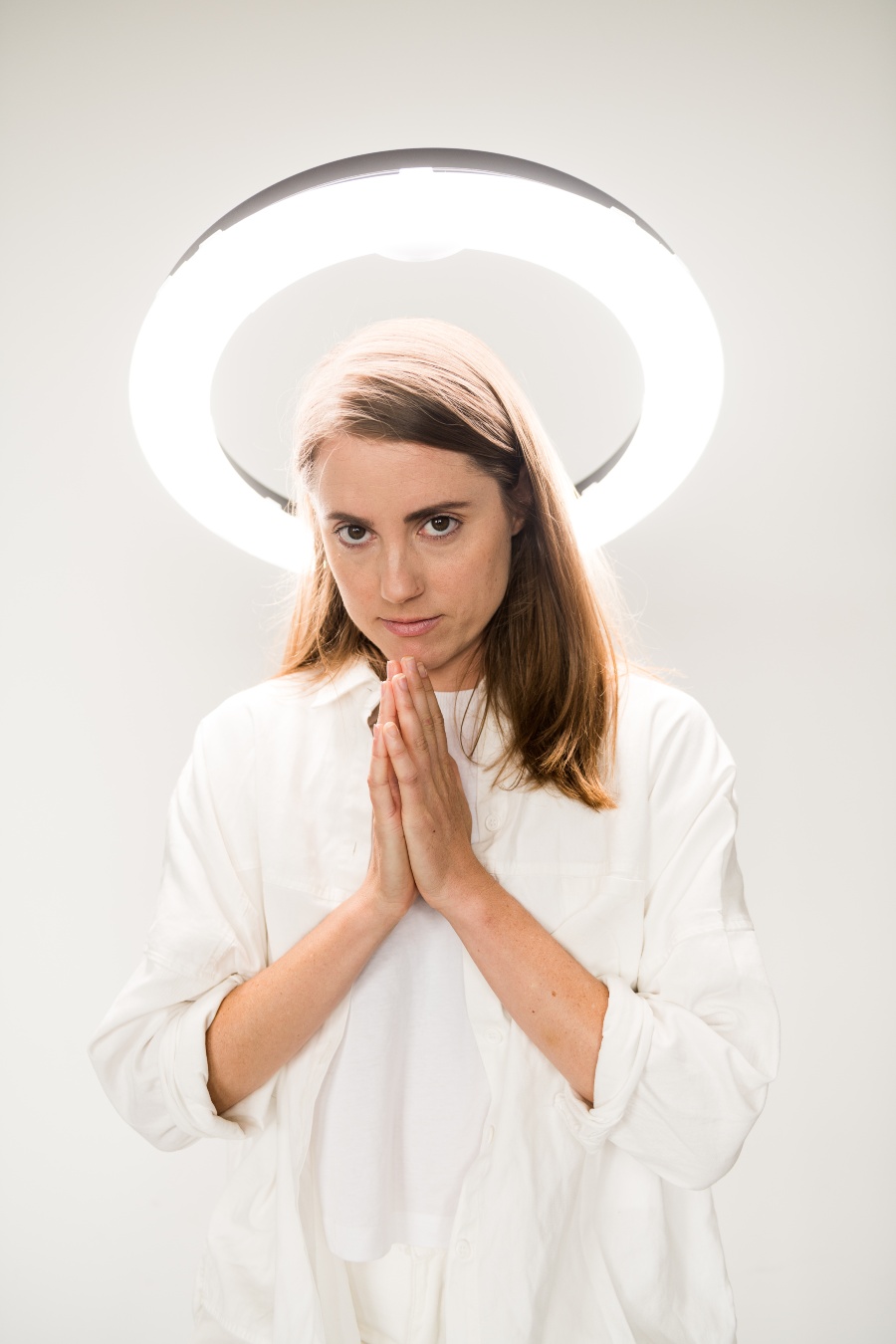
HAPPY: Wow. I guess as well as exploring new instruments and new ways to use your vocals, this record was sort of being created when the world was going to shit, was the songwriting and creation more therapeutic as a result?
JESS LOCKE: Some of the earlier songs were written in 2018, but the bulk was over 2019, and I wasn’t really playing many shows, and my time was very focused on writing. I was also kinda in this space of like, I kinda had the idea that I was writing a record, but at the same time, I was kinda just like, writing? It wasn’t just like ‘I’ve gotta get this record done!’, it was just like, I get up and my task for the day is to have a mess around. So, a lot of the days I would just play some weird… really weird stuff. I just let myself get it all out of my system, it wasn’t like everyday ‘ok, I’ve gotta write a hit’. Yeah, I’d just given myself space to just muck around and I think that’s really important, and eventually, you know, within that space you find the gems that make it on the record – but there’s also a lot that didn’t make it on the record and I think that’s something that often gets overlooked. You can put a lot of pressure on yourself to try and write songs when really it’s focussing on just having fun, and playing, and just yeah, getting weird. I think that’s really important, even if it doesn’t get used (laughs).
HAPPY: (Laughs) Yeah! I guess I sort of want to go back to sort of that experimental weirdness that you were talking about. Can you shed some light on Blowfish for me? It’s such an interesting lyrical choice, I can’t get it out of my head and I’d love to know more about it.
JESS LOCKE: Yeah! That song, I mean yeah, I think I was just walking around our house and my housemate had a synth setup, and I just started hitting some chords, and so the basis of the song was just these chords – which were just kind of hypnotic. So, I think I came up with a verse, the first verse, and just made a little phone demo and kinda left it, and then I kinda wrote the rest of the lyrics when I was in bed. Like, I feel like the song is more of a poem to me, the music is very minimal and it kinda just carries the words. I just kinda had this allegory of like, lions and lambs, and it was just like this metaphor of all these different animals. I started it, and the rest of it came just lying in bed, just jotting it down, and sort of put the rest to music the next day – so yeah, it was quite lyrically focussed I would say.
HAPPY: Yeah, I’m wondering, how does being a multi-disciplinary artist affect the way you interpret music? Would you say that being a visual artist as well makes you a better or more focussed musician?
JESS LOCKE: Hmmm that’s an interesting question. I don’t know that it would make me better or more focused – I like being able to switch between them. You know, you kinda get sick of doing one thing, and so you take a break and do another thing, so it’s kinda like a little respite to create a kind of balance I guess – which is important for me anyway. When I release music, you know, the visual side of things is very important to me and I always like it to be as much a part of the art as the music which is always a challenge. You can’t have control over everything but yeah, I like to make the album covers, and the merch, and even the video clips, I often have quite a strong idea of how I want them to present. I’m quite visually oriented as well and I think they all tie in together, you’re just expressing something in the end, whether it’s through images or music. So, I don’t know if it makes me any better but I like doing it (laughs).
HAPPY: Yeah, I guess you’ve mentioned that this record is a lot more meticulous and collaborative than other albums you’ve created, I guess I wanna ask how did Rob Muinos – am I saying that right?
JESS LOCKE: ‘Muinos’ – yeah I butchered it a few times!
HAPPY: Yeah, thank you for making me feel less white (laughs). How did Rob challenge you to shake things up, and would you want to make another record with this collaborative focus?
JESS LOCKE: Yeah, hundred per cent. It was a great experience! I think it was a really good fit because we just got along as people, and I think that’s probably the most important thing, besides from actually the skills – we had a lot of musical taste that overlapped as well. So my partner, Chris, the drummer, was working at the coffee shop next door to where Rob’s studio is and that’s how they met. So, it’s quite an organic little meeting, and yeah, we just decided to make the record with him and yeah. I think it was good because I hadn’t really worked with a producer before, it was always very much just like, you know, ‘this is the songs, and let’s put them down’ whereas Rob was more invested in the outcome and the process. You know, mostly in terms of the sound, and getting the best sound, and making the arrangements sound awesome. But yeah, like a lot of the time he would question me on like ‘does it need to repeat the chorus there?’ and like, you know, like I’ve never had someone kinda push back on the actual songs. You know, sometimes I was like ‘no, that’s how it is’, but yeah, like a lot of the time I think it made the songs better, sometimes in small ways – but also just having another person in the room who has investment in the outcome. Sometimes, I think the actual production can be overlooked, but it really changes the feeling of a song, and all that stuff. Yeah, just like a lot of the instrument choices, and whether to double a vocal or not – It just wouldn’t be the same record at all if we hadn’t recorded with Rob. His personality came into it just as much as the rest of us. 100 per cent would do it again, it was a great experience!
HAPPY: Yeah! I guess, do you know what I mean, sonically the production on this record is a focal point as well. What were you looking at for inspiration, or listening to at the time?
JESS LOCKE: Yeah! I guess there’s a lot of different things that I’m inspired by! I always have a bit of trouble when someone asks ‘what’re your production references’ and I’m not necessarily that person. For me, it’s more just like ‘I really love the vibe of this,’ but, there was a few kind of notable thing. I really love John Lennon and the classic Ono band, that record – just like that idea of the piano and the drum sound – there’s a song on the record called Late Bloomer, which is strongly inspired by that idea. I guess because the songs are so diverse, I really took from a lot of different kinds of areas. Like, it’s just so mixed, and I think that’s the thing about having Rob to kind of just like, take the wheel from there, and lead it in a direction.
HAPPY: Yeah, I guess that sort of wraps up all the questions I had – is there anything you wanna add-in? Anything that I haven’t touched upon that you think is important?
JESS LOCKE: Nah, I think we covered it and it’s all good!
HAPPY: Alrighty, well this has been fucking lovely thank you so much!
JESS LOCKE: Awww no worries! Thanks for the call!
Don’t Ask Yourself Why by Jess Locke is out now!
Interview by Mike Hitch
Photos by Ian Laidlaw

